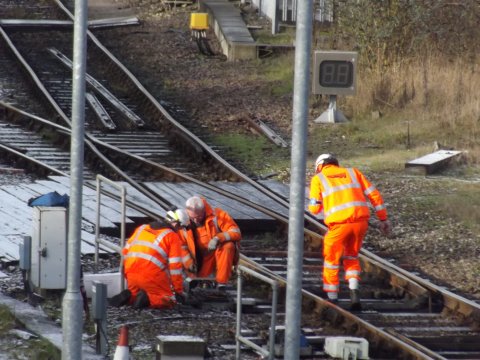
13 December 2016
Amelia Schofield reports on why the plans to privatise our rail tracks are bad news for our railways.
The latest attack on our public services has been announced: handing over control of train tracks from Network Rail to private companies.
As the public body responsible for the maintenance and safety of our railway, it is vital that we defend Network Rail and keep our rail infrastructure working for people not profit.
Last week the Transport Secretary, Chris Grayling, announced that he would end the division between control over track and train services in our rail networks by combining both in any future contracts. While a joined up approach sounds good, it doesn’t make sense if that means handing it all over to private companies. This is exactly what Grayling is planning in the case of the new East West Rail line to be opened between Oxford and Cambridge – the first fully privatised rail line since our railways were privatised in the 1990s.
Grayling has refused to admit that this is a step towards privatisation. We agree with the RMT union that this latest move is ‘a slippery slope to privatisation and the break-up of Network Rail’. If companies like East West Rail are given responsibility for the maintenance of our rail tracks, then they will be replacing the publicly owned Network Rail – this is stealth privatisation. But it is no wonder Grayling is hiding his plans to privatise, as 60% of the public believe our railways should be in public hands.
So what is so bad about private companies controlling our railway tracks? It is expensive, inefficient, and most importantly it is dangerous.
Railtrack was a private railway maintenance firm that went bankrupt in 2001 and had to be taken into public hands under Network Rail. Over the six years between 1995 and 2001, Railtrack paid out £709 million in dividends to its shareholders – this is money that could have been invested back into our railways if they were publicly owned. When Network Rail had to take over from the bankrupt Railtrack it cost taxpayers £1.3 billion. This is expensive.
Telecoms and electricity are two crucial parts of track maintenance services. The estimated cost of interfaces between these two parts of Network Rail if privatised is £48 million per year. This is inefficient.
In 2000, four people were killed in a train crash in Hatfield and, in 2002, seven people died after a train crash at Potters Bar. Both of these crashes were linked to poor rail track maintenance by private companies: Railtrack and Jarvis. Putting profit before people can lead to the neglect of safety. This is dangerous.
We have to call out the government on its plans to privatise our railways and say no to the privatisation of Network Rail.
Show your support by signing the petition now.


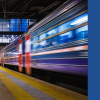
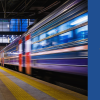
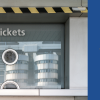
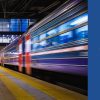
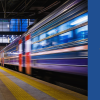
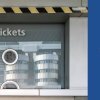
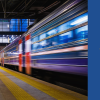

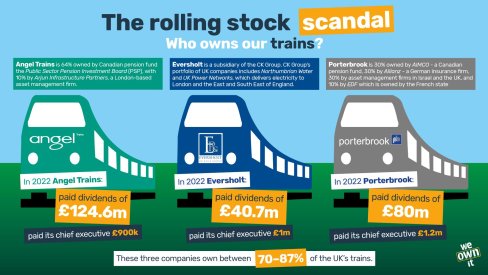
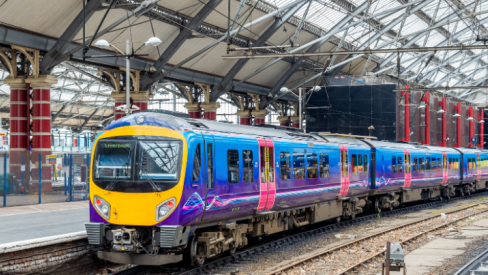
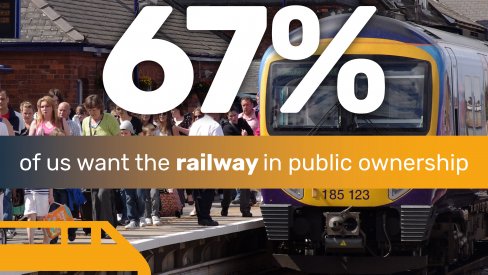

Comments
S BRADBURN replied on Permalink
DIVIDE and CONQUER seems to be TORY POLICY!
N Ghali replied on Permalink
As the public body responsible for the maintenance and safety of our railway, it is vital that we defend Network Rail and keep our rail infrastructure working for people not profit.
Last week the Transport Secretary, Chris Grayling, announced that he would end the division between control over track and train services in our rail networks by combining both in any future contracts. While a joined up approach sounds good, it doesn’t make sense if that means handing it all over to private companies. This is exactly what Grayling is planning in the case of the new East West Rail line to be opened between Oxford and Cambridge – the first fully privatised rail line since our railways were privatised in the 1990s.
Grayling has refused to admit that this is a step towards privatisation. We agree with the RMT union that this latest move is ‘a slippery slope to privatisation and the break-up of Network Rail’. If companies like East West Rail are given responsibility for the maintenance of our rail tracks, then they will be replacing the publicly owned Network Rail – this is stealth privatisation. But it is no wonder Grayling is hiding his plans to privatise, as 60% of the public believe our railways should be in public hands.
Catherine Vickery replied on Permalink
Our continental friends enjoy a publicly owned railway; funnily enough, they copied us. Time we turned this around and stopped providing income for shareholders with money that should be ploughed back into a publicly-owned, British railway system.
Alan Faith replied on Permalink
They should never have sold off the railways in the first place. British Rail were actually profitable until Thatcher broke off Sealink ferries and British Transport Hotels. Which were excellent and affordable, by the way.
Add new comment